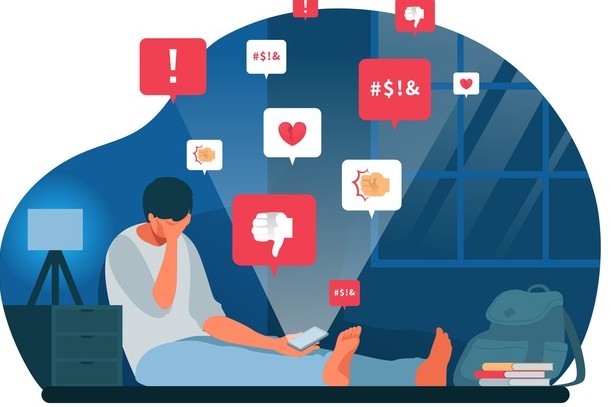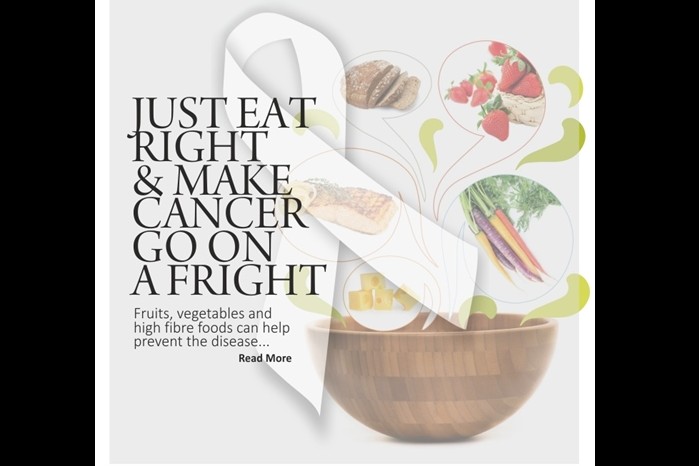Search will change based on location.
Monday 9AM - 6PM
Tuesday 9AM - 6PM
Wednesday 9AM - 6PM
Thursday 9AM - 6PM
Friday 9AM - 6PM
Saturday 9AM - 6PM
Sunday Closed
![]() 757-782-4072
757-782-4072
 n2unutrition.com
n2unutrition.com
![]() contact@n2unutrition.com
contact@n2unutrition.com
![]() Mon 11am - Fri 10pm
Mon 11am - Fri 10pm
0 Following
N2U Nutrition and Wellness is a primary care provider that believes wellness is not just management of disease, but rather it involves a balance of mind, body, and spirit. Nutrition, prevention of chronic conditions, and movement are crucial to wellness. Here, the patient and doctor are partners in their healthcare journey. At our practice, you will receive longer appointment times, a comprehensive health plan, and direct access to the doctor by phone or via the patient portal.
0 Reviews of N2U Nutrition
and we will get back you.
The Impact of Social Media on Mental Health: A Comprehensive Analysis Social media is commonly defined as a collective term for websites and applications that focus on communication, interaction, content-sharing, and collaboration (Rouse, 2020). In recent years there has been a rapid rise in the way communication, connection and sharing information happens on social media. Various platforms have been created and are being used for various purposes, the primary ones being Facebook, Twitter, and Instagram. This digital transformation has also led to concerns about its potential impact on mental health. There is a relationship between social media and the well-being of an individual. There are both positive and negative effects of social media on well-being.
The Positive Effects
1. Social Support- Social media has found to be useful in connecting with friends, family and people across vast distances. In the case of mental health, people undergoing some mental health issues such as anxiety, and depression, often find it useful to connect with the right professionals who can help them or connect with people with similar experiences virtually. Research suggests that maintaining online social connections can have a positive impact on overall mental health (Kross et al., 2013).
2. Awareness and Education: Social media platforms often provide valuable information about mental health. These platforms are used at various levels to provide awareness and fight against stigma linked with mental health issues.
3. Expression and Creativity: Sharing personal experiences, creativity and work is often empowering and helps to boost self-esteem. It hence has a positive impact on mental well-being. Studies have indicated that engaging in creative activities can reduce stress and improve mood.
he Negative Effects
1.Addiction and Time Consumption: Social media is designed to grab the attention of users and as a result, it can lead to excessive time spent on screen. The effect of increased screen time are varied; ranging from disturbance in sleep, ignoring real-life relationships leading to isolation, affecting physical health and lifestyle and reduced self-esteem.
2.Comparison and Envy: One of the most significant negative impacts of social media is the tendency for users to engage in social comparison. There are feelings of inadequacy that can also cause low self-esteem, anxiety and depression. A study by Chou and Edge (2012) found that increased social comparison on Facebook led to decreased self-esteem.
3. Cyberbulling: Cyberbullying is also known as online bullying. It occurs on digital platforms such as social media. The impact of cyberbullying can lead to severe consequences such as stress, depression, anxiety, low self-esteem, isolation and loneliness.
4. Fear of Missing Out (FOMO): It is mainly the compulsion to check feeds as a consequence of anxiety associated with the fear of missing out on things on social media. It can lead to disturbed sleep, lower life satisfaction, decreased mood and restlessness. This affects overall mental well-being.
he Negative Effects
1.Addiction and Time Consumption: Social media is designed to grab the attention of users and as a result, it can lead to excessive time spent on screen. The effect of increased screen time are varied; ranging from disturbance in sleep, ignoring real-life relationships leading to isolation, affecting physical health and lifestyle and reduced self-esteem.
2.Comparison and Envy: One of the most significant negative impacts of social media is the tendency for users to engage in social comparison. There are feelings of inadequacy that can also cause low self-esteem, anxiety and depression. A study by Chou and Edge (2012) found that increased social comparison on Facebook led to decreased self-esteem.
3. Cyberbullying: Cyberbullying is also known as online bullying. It occurs on digital platforms such as social media. The impact of cyberbullying can lead to severe consequences such as stress, depression, anxiety, low self-esteem, isolation and loneliness.
4. Fear of Missing Out (FOMO): It is mainly the compulsion to check feeds as a consequence of anxiety associated with the fear of missing out on things on social media. It can lead to disturbed sleep, lower life satisfaction, decreased mood and restlessness. This affects overall mental well-being.
The Negative Effects
1.Addiction and Time Consumption: Social media is designed to grab the attention of users and as a result, it can lead to excessive time spent on screen. The effect of increased screen time are varied; ranging from disturbance in sleep, ignoring real-life relationships leading to isolation, affecting physical health and lifestyle and reduced self-esteem.
2.Comparison and Envy: One of the most significant negative impacts of social media is the tendency for users to engage in social comparison. There are feelings of inadequacy that can also cause low self-esteem, anxiety and depression. A study by Chou and Edge (2012) found that increased social comparison on Facebook led to decreased self-esteem.

Cancer ‘The C word”, it’s incidence is increasing by leaps and bounds and in-spite of lot of scientific breakthroughs in treating cancer we are still constantly losing a lot of precious lives because of it. The root causes of cancer are complex and multifactorial, with possible causes including: poor diet, exposure to environmental toxins, genetics, viruses or infections, high stress levels, poor digestion and nutrient absorption, and lack of physical activity. A lot of factors are responsible for causing cancer but I think my own prescription of health is less paperwork and more running barefoot through grass. In other word which means staying away from tobacco and alcohol and watching what goes down south through your mouth. Experts say that we can prevent 1 in 10 cancers by just eating right. The doctors of the future will no longer treat the human frame with drugs but rather will cure and prevent diseases with nutrition.
1. Love your leafy greens- Leafy greens are the cornerstone of any healthy diet since they’re exceptionally rich in vitamins, minerals, antioxidants and enzymes, yet very low in calories, fats, sodium and other toxins. Leafy greens of all kinds — are rich in antioxidants known to combat cancer, including vitamin C and beta-carotene .
As natural sources of glucosinolates, these powerhouse chemicals are known to break down into indoles, thiocyanates and isothiocyanates which help to detoxify body at the cellular level.
2. Cruciferous Vegetables- morning noon and night!
Sneak them in or drink them through!!
Cruciferous vegetables (cauliflower, cabbage, kale) are known to be powerful cancer killers and some of the best vitamin C foods widely available. Many are rich inglutathione, known as the body’s “master antioxidant” since it has high free-radical-scavenging abilities. They contain isothiocyanates, sulforaphanes and indoles very strong antioxidants and also target cancer stem cells—those that aid in tumor growth.
Helps fight: breast, liver, lung, prostate, skin, stomach, and bladder cancers
3. Brightly Orange-Coloured Fruits and Veggies
(Citrus Fruits, Squash, Sweet Potatoes, etc.)
Brightly coloured pigments(Carotenoids (alpha-carotene, beta-carotene, lycopene, lutein, cryptoxanthin) found in plant foods are a sure sign that they’re beaming with phytochemicals. This is exactly the reason you want to “eat the rainbow” and vary the colours of the foods on your plate. In addition studies show that complex carbs, including sweet potatoes, carrots, beets, other tubers and whole-grain foods, is related to a reduced risk of several types of cancer, particularly of the upper digestive tract. This is likely due to a favourable role of fiber, but the issue is still open to discussion. In contrast, refined grain intake and high glycemic load foods (as sugar, flour, rice, white potatoes) are associated with increased risk of different types of cancer, including breast and colorectal.
4.Berries- All berries as Blueberries, raspberries, cherries, strawberries, goji berries, camucamu and blackberries are packed with cancer-fighting phytonutrients. They supply vitamin C, vitamin A and gallic acid, a powerful antifungal/antiviral agent that increases immunity.But black raspberries, in particular, contain very high concentrations of phytochemicals called anthocyanins, which slow down the growth of premalignant cells and keep new blood vessels from forming (and potentially feeding a cancerous tumor),
Helps fight: colon, esophageal, oral, and skin cancers
5.Tomatoes- This juicy fruit is the best dietary source of lycopene, a carotenoid that gives tomatoes their red hue, lycopene was found to stop endometrial cancer cell growth.
Helps fight: endometrial, lung, prostate, and stomach cancers
6.Walnuts- Walnuts, their phytosterols (cholesterol-like molecules found in plants) have been shown to block estrogen receptors in breast cancer cells, possibly slowing the cells' growth.
Helps fight: breast and prostate cancers
7.Garlic- Phytochemicals in garlic have been found to halt the formation of nitrosamines, carcinogens formed in the stomach (and in the intestines, in certain conditions). Ingredients in the pungent bulbs may keep cancer-causing substances in your body from working, or they may keep cancer cells from multiplying. A clove a day may be helpful.
Helps fight: breast, colon, esophageal, and stomach cancers
8. Traditional Teas- The consumption of green tea can help decrease cancer risk. Green tea contains major polyphenolic compounds, including epigallocatechin-3-gallate, which has been shown toinhibit tumor invasion and angiogenesis, which are essential for tumor growth and metastasis. Matcha green tea contains the highest percetange of polyphenolic compounds, catechin, gallocatechin and EGCG. The antioxidant EGCG, its anticancer effects have activity about 25–100 times more effective than that of vitamins C and E.
9.Turmeric- It contains the active ingredient curcumin, and has been shown to decrease tumor size and fight colon and breast cancer. Along with easy-to-use black pepper, turmeric absorption is enhanced and better able to fight inflammation. Aim for one teaspoon of turmeric powder and 1/4 teaspoon of black pepper or more daily, which can easily be used in a tonic drink, with eggs or in a veggie stir fry. Additionally, other herbs that act asimmune system boosters include ginger, raw garlic, thyme, cayenne pepper, oregano, basil and parsley — which can easily be used in many recipes, juices, dressings and smoothies.
10. Nuts and Seeds- Ch-a-a-a-a-clit- Chia seeds and flaxseeds are two of the most nutrient-dense seeds in the world. They provide fiber, omega-3 fatty acids and a range of important minerals. Hemp seeds, sesame seeds, pumpkin seeds and sunflower seeds are also beneficial and full of healthy fatty acids, as are walnuts, brazil nuts and almonds. Aim for two tablespoons daily.
11. Healthy Unrefined Oils (Coconut, Flax, Cod Liver and Extra Virgin Olive Oil) Replace refined vegetable oils, hydrogenated oils and trans fats with quality oils, including flax oil, extra virgin olive oil, cod oil and coconut oil. These nourish your gut and promote better immune function, help you reach and maintain a healthy weight, plus flaxseed and cod liver oil contain essential omega-3 fatty acids that can help energize your cells.
12. Cultured Dairy Products - These are a rich source of “good bacteria” probiotics, which can stop tumor growth and help cells renew. Aim for six ounces of cultured dairy daily (probiotic yogurt, cottage cheese, goat milk). Cottage cheese, which is rich in sulphur protein and saturated fats, was found to be especially beneficial as part of the Budwig diet for cancer protocol.
